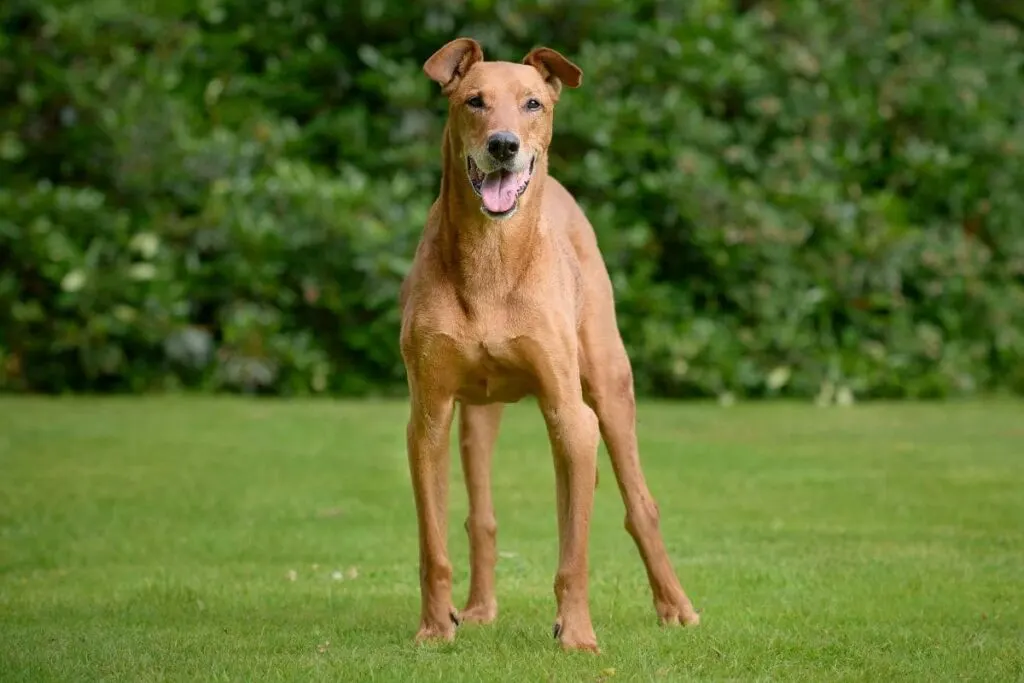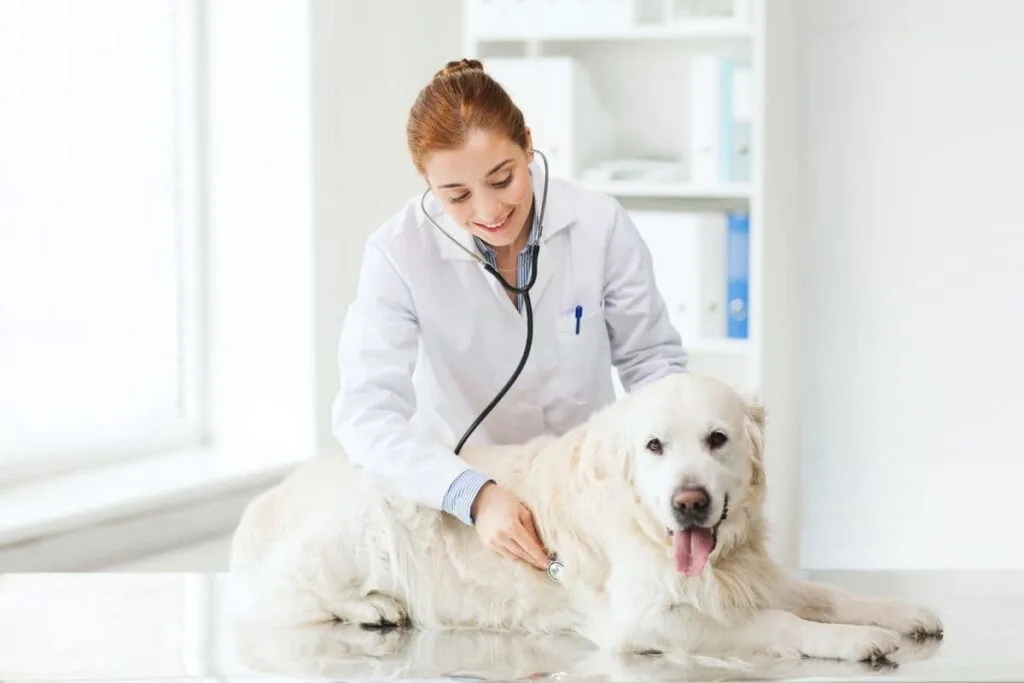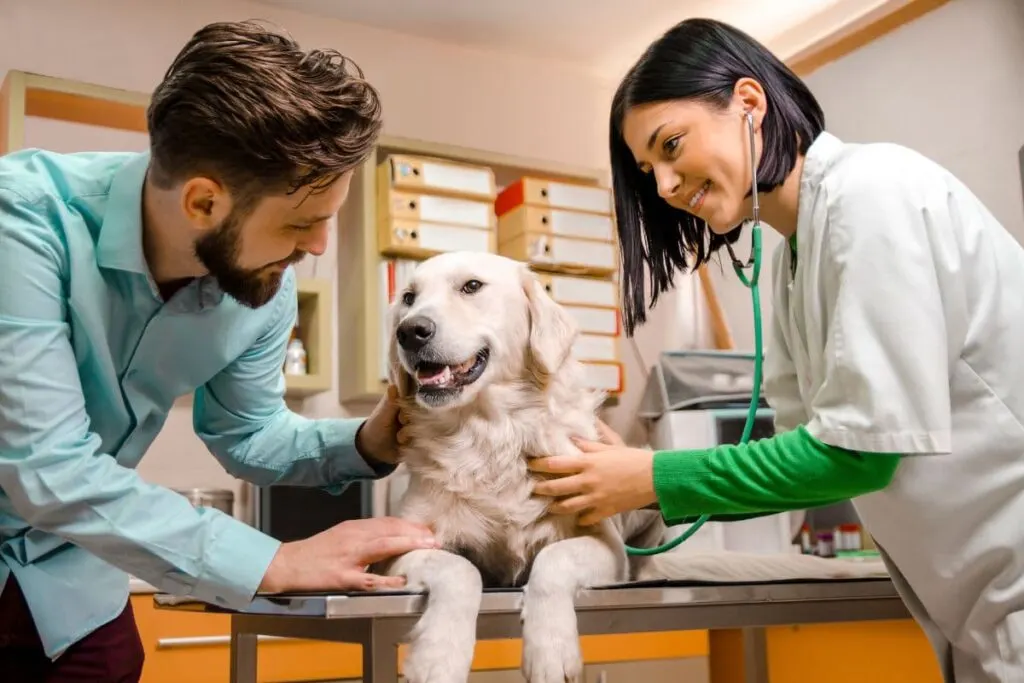Most pet owners choose to neuter their dogs when a pup is still young.
However, some owners may need more clarification about neutering and decide to wait before letting their dogs undergo the procedure.
As pets mature, you might wonder if three years is too old to neuter a dog.
3 years is not too old to neuter a dog if the dog has no other health considerations. You can neuter a dog at any age, but it is best to have the procedure done when the dog is still young. An older dog has an increased probability of developing health complications post-operation.
I’ll share the best age to neuter a dog in this article and discuss some possible health concerns with neutering too early.
Finally, I’ll talk about the benefits of neutering your dog and how the procedure can affect its health later in life.

What’s the Best Age To Neuter a Dog?
According to the American Kennel Club, the best age to neuter a dog ranges from six to nine months for toy and small breeds and twelve to eighteen months for large breeds.
Traditional thought had previously been that dogs should be spayed and neutered between four and six months of age.
However, recent studies have shown correlations between spaying or neutering a dog too early and later-in-life health complications.
When a puppy is neutered too early, the absence of sex hormones has health implications for the developing canine.
By extending the timeline, the idea is that the dog has matured to a stage where the absence of those hormones doesn’t adversely impact other systems.
What Are The Risks of Neutering a Dog Too Early?
According to a study by the University of California, Davis, large-breed dogs weighing 44 pounds (19.95 kg) and above have an increased risk of joint problems if neutered before one year.
The researchers found dogs weighing in at 43 pounds (19.50 kg) or less to have no increased risk of joint disorders if neutered before one year old.
The study found that joint issues in dogs who were neutered too early in life include hip dysplasia, ligament tears, knee injuries, and elbow dysplasia.
The American Kennel Club Canine Health Foundation conducted a similar study on Golden Retrievers.
They had similar findings to the UC Davis study but also found that incidences of joint issues occurred in late-neutered dogs.
The study also saw an increased rate of certain cancers and the appearance of specific pre-cancerous cells, again found in both early and late-neutered dogs.
While neutering a dog too early correlates with specific joint issues, research suggests that waiting too long could also contribute to cancerous cell growth.
What Are the Benefits of Neutering a Dog?
The list of benefits to neutering your dog falls into two categories: health and behavioral benefits.
Generally, neutering a dog has the following health benefits:
- Larger dog breeds neutered after a year old have a decreased likelihood of contracting joint problems.
- Neutering prevents prostate issues that could otherwise arise later in life.
- Neutering completely eliminates a pup’s risk of testicular cancer.

Behavioral benefits include the following:
- Neutered male dogs tend to roam less and aren’t as inclined to escape from home to find a mate as an intact male.
- Fixed males display fewer behavioral issues like aggression, mounting other dogs, and marking indoors and out to show territorial boundaries.
Other than this, neutering is absolutely essential if that dog is supposed to be trained as a service dog.
Check out my article on training old dogs as service dogs for more information. [Can Older Dogs Still Be Trained as Service Dogs?]
Common Myths About Neutering a Dog
There are several common myths about neutering dogs that aren’t true.
The central myths include the following:
- Neutered canines get fat.
- Neutering will address behavioral issues such as roaming or male-dog aggression quickly, if not immediately.
- Neutering will encourage your pet to ignore any future training or learning.
- The dog is too old to get neutered.
Interestingly, the behavioral concerns with male dogs often have very little to do with whether the dog is neutered or intact.
If you’re concerned about behavioral or health issues with your dog before or after neutering, consult your veterinarian to find out more.
Ways to Prepare Your Dog Before and After Neutering
Neutering your dog is a common procedure, but if you’re a first-time dog owner, sending your furry friend for neutering can be disconcerting.
Before the procedure, there are several things you need to do to ensure your pet’s operation is smooth sailing.
Likewise, you’ll also need to prepare for when your dog returns from the clinic so they can recover comfortably.
Before the Surgery
Here are several things you can do to prepare for neutering your dog:
- Be sure vaccinations are up to date.
- Gradually encourage your dog to be comfortable confined or in a kennel.
- Follow preoperative instructions on feeding.
- Have all items you will need for your dog’s comfort on hand before they have the surgery (e.g., toys, food, and medication).
- Plan to be home with your dog during the recovery stage.
After the Surgery
There are several things you can do to prepare for the post-surgical needs of your dog:
- Follow postoperative instructions on feeding and activity levels.
- When taking the dog outside, be sure the dog is always on a leash to avoid injury or infection.
- Keep your dog’s diet consistent, and don’t introduce new foods while they’re recovering.

- Check the incision at least twice daily to ensure the site isn’t draining and isn’t swollen or red.
- Ensure your dog wears an appropriately-sized Elizabethan collar during the recovery period to prevent licking and infection of the incision.
- Take your dog to all follow-up appointments that your vet schedules.
Final Thoughts
For many people, neutering a dog can be a complicated decision that requires time, research, and careful consideration.
A three-year-old dog can undergo neutering provided it has no underlying health issues or complications that may cause problems during or after the surgery.
However, the best time to neuter a dog is before it reaches adulthood.
Speak with your vet to get input on whether your dog could benefit from neutering and if they advise that you schedule the surgery.
